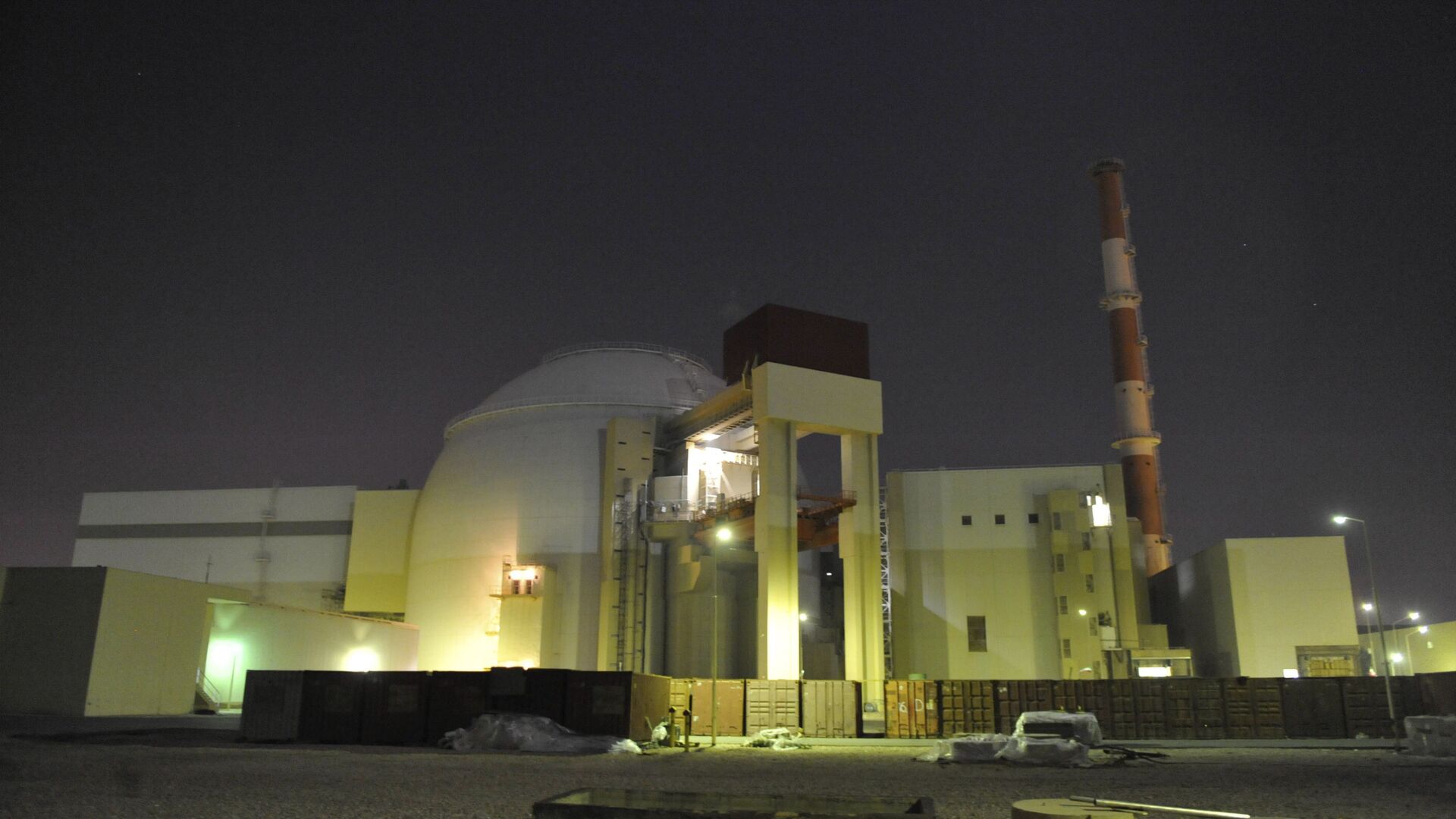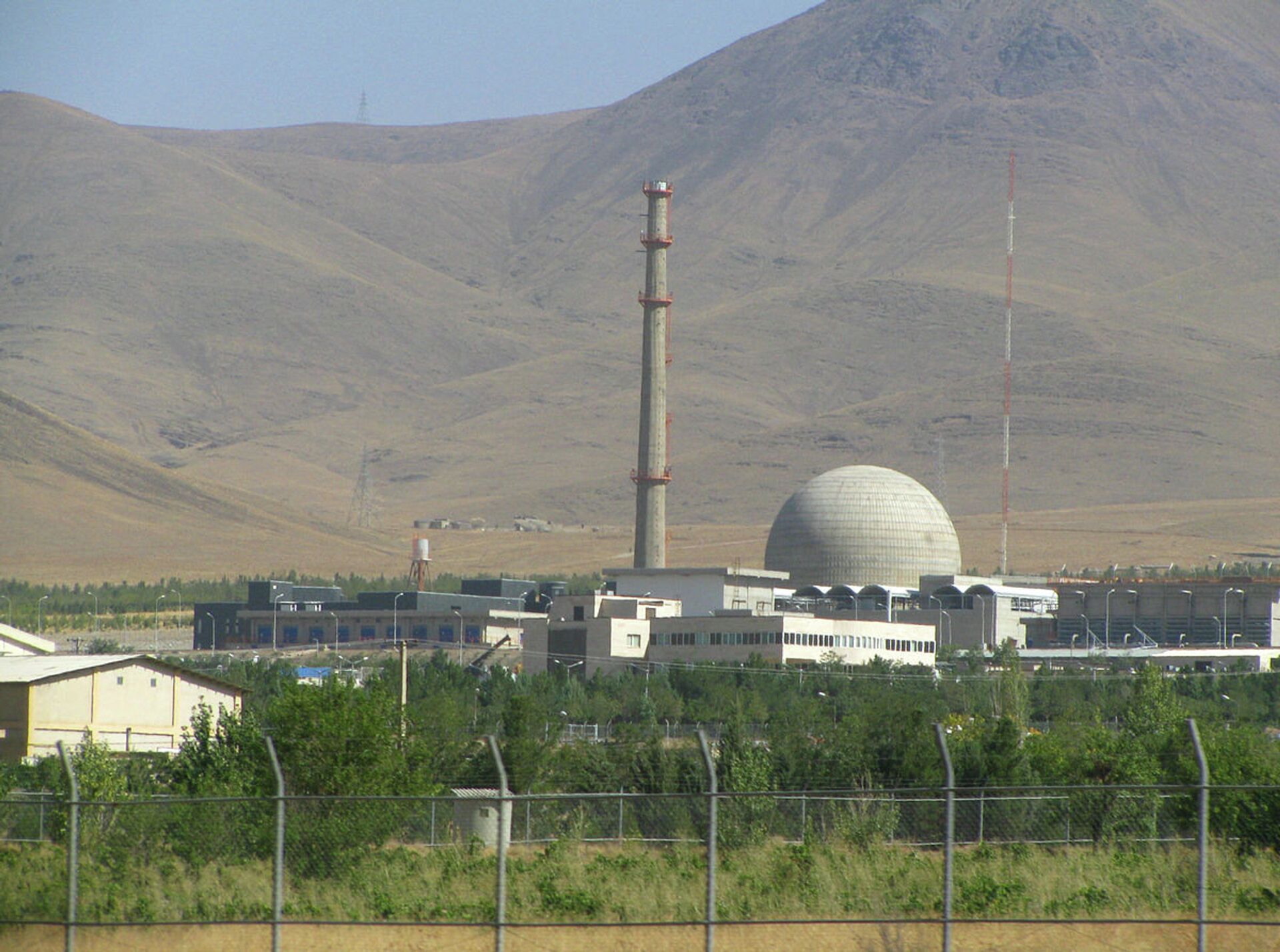Biden Admin Issues Sanctions Waiver for Iran’s Civil Nuclear Program for First Time Since 2020

© AP Photo / Mehdi Ghasemi
Subscribe
For the first time since the Trump administration pulled out of the Iran nuclear deal, the US has temporarily removed some of the sanctions it imposed against Iran, allowing other countries to resume cooperation with Tehran’s civil nuclear power program.
US Secretary of State Antony Blinken signed several sanctions waivers on Friday, allowing other countries and firms to work with Iran’s civil nuclear program without risk of sanction by Washington.
"We decided to restore a sanctions waiver to enable third party participation in nuclear non-proliferation and safety projects in Iran due to growing non-proliferation concerns, in particular with respect to increasing stockpiles of enriched uranium in Iran," a State Department official told Sputnik.
Iran has three nuclear power plants, a small research reactor in Tehran, a heavy water reactor at Arak, and a nuclear power station at Bushehr, the lattermost of which Iran built and operated with Russian help before the US pulled out of the 2015 Joint Comprehensive Plan of Action (JCPOA), an international deal that assuaged fears Iran was pursuing a nuclear weapon. In exchange for accepting strict limitations on the quality and quantity of uranium it could refine, Iran won the lowering of decades-long economic sanctions intended to coerce it into compliance with Western demands. China’s work on redesigning the Arak reactor so that it could no longer produce plutonium from refined uranium was also enabled by the deal.
However, in 2018, the US unilaterally pulled out of the deal, accusing Iran without evidence of secretly restarting its nuclear weapons program and reimposing “maximum pressure” sanctions that severely hurt the Iranian economy. Iran denied violating the deal, but after the JCPOA’s European partners decided to acquiesce to US sanctions, Iran began reducing its commitments under the deal, increasing the purity of uranium it refined and storing more of it, in its own attempt to pressure the US to return to the deal.
However, even while applying its economic sanctions, the Trump administration continued to grant waivers for Iran’s civil nuclear program for two years until finally revoking them in May 2020, claiming Iran’s commitments reduction was “nuclear brinkmanship.” The decision came months after the US assassinated Gen. Qasem Soleimani, commander of Iran’s elite Quds Force, and while a US aircraft carrier strike group was positioned off the Iranian coast.
Iran denies it is pursuing a nuclear weapon, and a 2010 ruling by its highest legal authority, Ayatollah Ali Khamenei, found the use of any weapons of mass destruction to be a violation of Islam.

Arak IR-40 Heavy Water Reactor, Iran
© Photo : Wikipedia / Nanking2012
After US President Joe Biden took office in January 2021, talks began on a return to the JCPOA, with the eighth round of negotiations beginning in Vienna in late December. Now, with the two sides seemingly closing in on an agreement, the White House has removed some of the sanctions early as a seeming gesture of goodwill.
"[T]he technical discussions facilitated by the waiver are necessary in the final weeks of JCPOA talks, and the waiver itself would be essential to ensuring Iran’s swift compliance with its nuclear commitments," the State Department official told Sputnik. "If talks do not result in a return to the nuclear agreement, such technical discussions could still contribute to achieving our non-proliferation goals."
Despite the move, the US has postured as impatient over the Vienna talks, saying for months that just a handful of weeks remain before a return to the JCPOA will be deemed impossible.
Under the JCPOA, Iran had a system of international agreements for selling or trading away its excess refined uranium in order to abide by the deal’s limitations. Since 2018, it has increased the purity of its uranium from 3.67% U-235, as allowed under the JCPOA, to at least 60%, although the scientists who design and build the United States’ nuclear weapons say that a purity of at least 90% is necessary to build a viable nuclear bomb - in addition to developing the necessary detonation and transport technologies.
According to Israeli military intelligence, which is scarcely inclined to be charitable to Tehran’s position, Iran’s ramping up of uranium refining has not been paralleled by any nuclear bomb technology research or testing, strongly suggesting they aren’t building a bomb.
